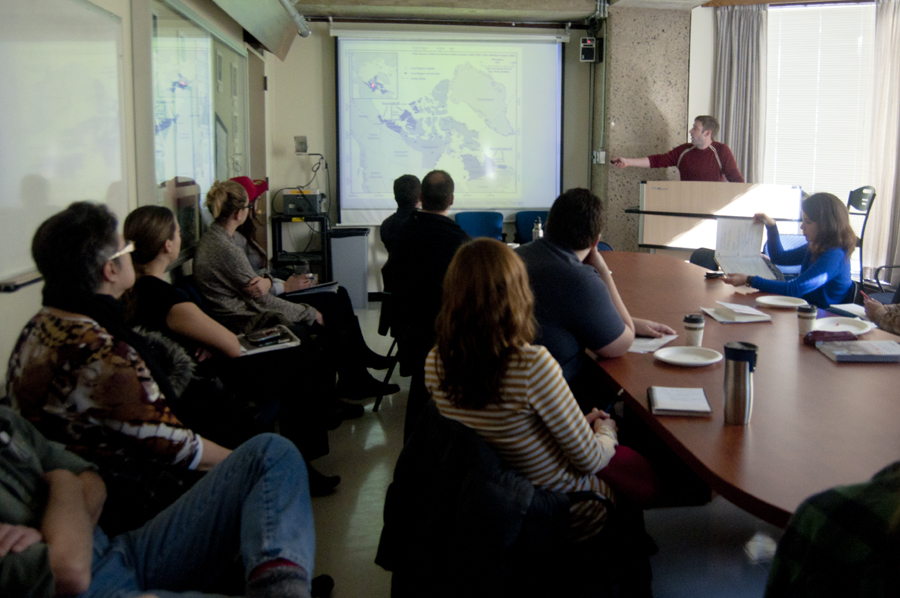James Ford, head of the Climate Change Adaptation Research Group, and McGill geography professor, gave a presentation last Friday on climate change’s impact on the Inuit communities of the Arctic, as well as the various adaptation strategies the communities have developed.
The lecture was one in a series of speaker events organized and sponsored by the Centre for International Peace and Security Studies (CIPSS). Vincent Pouliot, CIPSS Director and an associate professor of political science, explained that Ford’s work addresses the mission and increasingly interdisciplinary approach of the CIPSS.
“While we intend to maintain our proven expertise in more traditional security studies, we also want to develop new, interdisciplinary research programs that take seriously the multifaceted challenges of peace and security in the 21st century,” Pouliot said.
Ford began the lecture by explaining the aim of his research.
“My research focuses on the human dimension of climate change,” Ford said. “I am interested in the intersection between climate and society; how societies experience climate change and how they respond.”
Ford explained that, as a result of rising temperatures and rapidly melting sea ice, the Arctic has been the region most dramatically affected by climate change. According to Ford, some of the new problems Inuit communities face include decreased access to hunting areas, damage to infrastructure and cultural sites, and changes in animal populations.
Ford said that Inuit communities have already begun to adapt to these new realities, which have become increasingly important for them.
“[They] are not passive in the face of environmental change,” Ford said.
Ford specifically pointed to hunting as one area in which Inuit communities have altered their practices. Communities have devised new transportation routes, used hazard maps for given areas, and increased their use of motorized transportation, such as boats and all-terrain vehicles.
“People are taking more precaution when they are going hunting, expecting to encounter more dangers because of the changes that been observed already,” he said.
In response to the food security problem, some communities have developed food-sharing networks, where they pool and share food resources to alleviate the pressure on individual families. They have also shifted from hunting to relying more on store-bought goods. Ford noted that this particular adaption, however, can come at a high economic cost—for example, the high costs of shipping food to northern areas. They are not always easy to implement because of limited economic resources.
According to Ford, government hunting quotas also provide a challenge to adaptation. He explained that bans on polar bear hunting from 2009 have restricted communities’ ability to respond to the increase or decrease of various Arctic animal populations.
Ford also said there is concern among Inuit communities that the younger generations lack basic knowledge and practical skills for hunting, which further complicates adaptation to environmental change.
However, Ford believes successful adaptation to climate change is still possible. He explained that the process is already underway, and can be strengthened by outside intervention—especially work that takes a more holistic approach to climate change and recognizes how characteristics of Inuit societies shape their responses to adaptation.
Alice Chesse, a PhD student in political science specializing in Canadian Arctic foreign policy, attended the talk. She said the Canadian government’s “broader strategic interests” are related to adaptation of Inuit communities in the North.
“Canadian Arctic policy’s main objective is the recognition of its sovereignty over contested areas of the Arctic,” Chesse said. “In that perspective, the enhancement of the socio-economic conditions of Inuit communities in the North [is] also important for the Canadian government. Developing and improving human livelihood in the Arctic empowers the government’s claims for the recognition of its de facto sovereignty over the region.”







